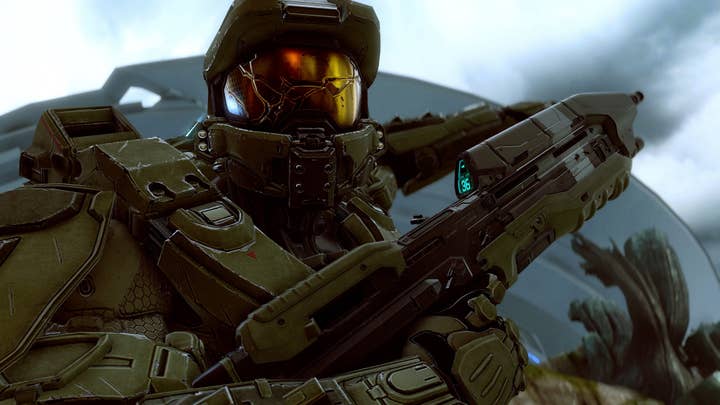"Microsoft had already loaded Sony's gun" | 10 Years Ago This Month
Xbox's strong lineup of next-gen games at E3 2013 was no match for Sony promising the same old, same old
The games industry moves pretty fast, and there's a tendency for all involved to look constantly to what's next without so much worrying about what came before. That said, even an industry so entrenched in the now can learn from its past. So to refresh our collective memory and perhaps offer some perspective on our field's history, GamesIndustry.biz runs this monthly feature highlighting happenings in gaming from exactly a decade ago.
It's June, so that means it's E3 time!
Well, not this year.
It used to mean E3 time, when the big console makers got together to show off their biggest and best upcoming games during the same week at the same show. It lent itself very neatly to narratives about winners and losers.
Most years, that narrative was a bit overblown. In 2013, there was absolutely a clear winner and a clear loser, and it had surprisingly little to do with the actual games they showed.
Xbox goes first
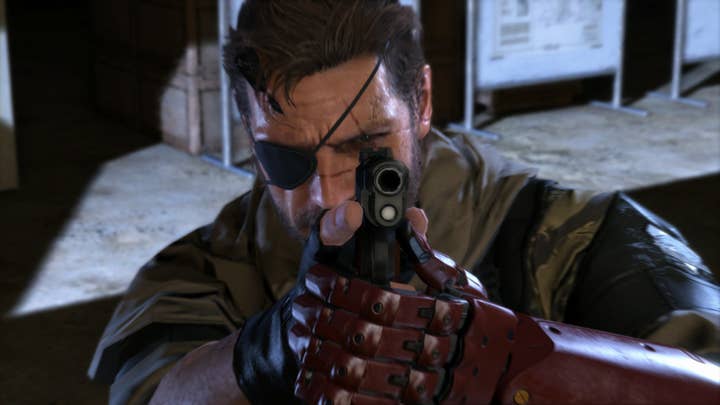
Microsoft was coming off a disastrous reveal event for the Xbox One in which it marketed its next-gen gaming console with things that weren't games: specifically, television, sports, and… Skype?
That show didn't go over well at all, and the company had promised its E3 show was going to be all about the games. To Microsoft's credit, it made good on that promise.
The Xbox E3 show featured a stacked lineup of high-profile games like Metal Gear Solid 5, The Witcher 3, Battlefield 4, a new Halo, Ryse: Son of Rome, Sunset Overdrive, Dead Rising 3, and the first ever glimpse of Respawn's debut Titanfall.
Outside of those headliners, there was Swery65's D4, the user-generated content experiment Project Spark, an Xbox One version of Minecraft, a little indie representation with Capybara's Below, and an untitled game from Microsoft's Black Tusk that was at least intriguing, even if it would be shelved in a matter of months so the studio could go to work on Gears of War.
However, there were a couple blemishes. We'll get to one of them a bit later, but the other one was the price: $499.
It wasn't a perfect show by any means, but it was a nice offering of games for would-be Xbox One purchasers to get excited about, and a good step on the way toward convincing people that the system might be a worthwhile purchase even with the unpopular online restrictions that had been rumored for some time and confirmed in the weeks ahead of E3.
Sony answers
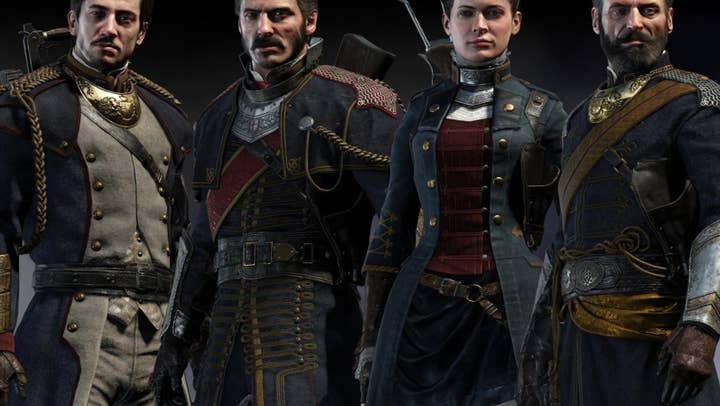
It's easy to make the argument that Sony had the weaker E3 on the games front. The big game was Destiny, which Bungie had been talked about previously but not shown off.
Beyond that, there was a first-party lineup of games that would underwhelm on release – The Order 1886, Killzone Shadow Fall, DriveClub, and Knack – as well as some big third-party games like Final Fantasy 15, Assassin's Creed: Black Flag, and the show-stealer of the previous year's E3, Watch Dogs.
There was also a notable segment devoted to indie games like Transistor, Don't Starve, and Mercenary Kings, which was helpful in bolstering the narrative that Sony was the indie-friendly company of the moment as Microsoft had conceded whatever head start it had on that front with Xbox Live Arcade. (This was perhaps best embodied by Jonathan Blow, developer of breakthrough XBLA indie hit Braid, showing off his follow-up game on stage during the PS4 reveal a few months prior.)
Microsoft handed Sony a devastating one-two punch of easy victories that had nothing to do with games
It was a fine lineup. It was fine. Certainly not Sony's best, and probably less impressive than what Microsoft showed off. This should have been just another E3 where enlisted console warriors had plenty to cling to for reassurance that they had built their identity on the correct consumer electronics.
But it wasn't, in large part because Microsoft handed Sony a devastating one-two punch of easy victories that had nothing to do with games.
The first was easy: The price. Xbox was $499, but Sony announced during its conference that PS4 would be $399.
Listen to the reaction that got from the crowd. They "woofed" like an Arsenio Hall crowd, some 19 years after Hall's late night show had gone off the air.
But the biggest, most prolonged applause of the night was not about price. It was when Sony Computer Entertainment America president and CEO Jack Tretton delivered body blow after body blow directly to Microsoft over its digital restrictions, belaboring a point to an almost petty degree as he announced a series of features that were about as novel as the system having a power cord to plug into the wall.
"PlayStation 4 won't impose any new restrictions on the use of [PS4 games]," Tretton said.
I had to put that last bit in square brackets because the roar of the crowd actually makes the end of Tretton's statement unintelligible. He savored the applause for a moment, then went back to work.
"When a gamer buys a PS4 disc, they have the rights to use that copy of the game. They can trade in the game at retail, sell it to another person, lend it to a friend, or keep it forever."
More applause, escalating as Tretton lists basic functionality that Sony could never have advertised as a feature previously. A small Sony chant breaks out, which itself generates more applause.
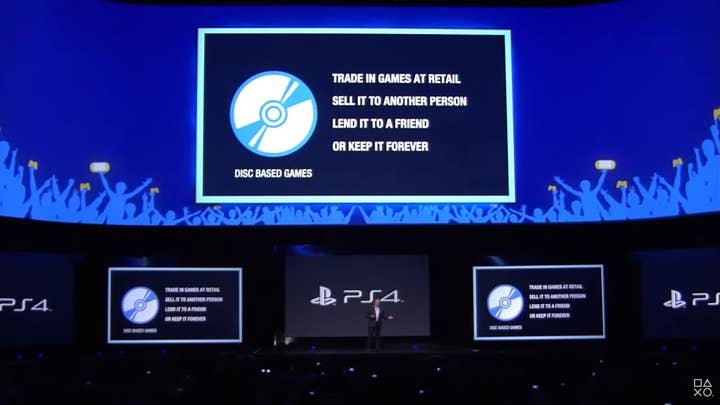
"In addition, PlayStation 4 disc-based games don't need to be connected online to play," Tretton says, the crowd interrupting him before he can continue his sentence.
Somewhere we imagine a child in an Xbox T-shirt screaming through tears, "Stop it! Stop it! He's already dead!" But Tretton is relentless.
"…Or for any type of authentication," Tretton continues. "If you enjoy playing single-player games offline, PS4 won't require you to check in online periodically."
A lone person whooped after "any type of authentication," throwing the vibe the slightest bit offkilter. Perhaps as a result, the cheer at the end of the line is somewhat lacking compared to the previous ones. Will this spinning top wobble its way to a halt, or can Tretton bring the crowd back in unison one more time?
"And it won't stop working if you haven't authenticated within 24 hours."
More big cheers, an audible laugh cutting over the crowd. Tretton moves on to other news and the broad daylight beating of Microsoft is finally, mercifully, over.
Every bit of information Tretton communicated could have been crammed into 10 words and a few seconds: "No online requirements for PS4. Everything's the same as before." Instead he milked it for two whole minutes, a small eternity in a show like that.
The crowd was so enamored with the bloody spectacle that played out before them they didn't even blink a couple minutes later when Tretton announced that Sony was reversing course on one of PS3's big selling points and would charge people for online multiplayer on PS4.
As if that wasn't enough, Sony also gleefully dunked on Microsoft with its "Official PlayStation Used Game Instructional Video" on YouTube, a 21-second video showing Shuhei Yoshida hand a PS4 game to Adam Boyes.
That gag has been viewed more than 19 million times. (The PlayStation YouTube channel has fewer than 15 million subscribers even a decade down the road.)

This was one E3 where there wasn't much debate about winners and losers.
In an interview after the event, Sony Worldwide Studios' Scott Rohde said the reaction to the PS4 announcements did not go unnoticed by the industry.
"All those publishers were sitting in [our] press conference last night. When Jack [Tretton], punch after punch after punch, and the house almost came down with all the cheers, they heard that."Sony's Scott Rohde
"All those publishers were sitting in [our] press conference last night," he said. "When Jack [Tretton], punch after punch after punch, and the house almost came down with all the cheers, they heard that. They heard it loud and clear and they saw the reaction to what our friends in green talked about. I think it's pretty clear that we've set a nice precedent."
As our own Matt Handrahan said in a staff roundtable, "Microsoft did exactly what its public had asked, and it did it with a minimum of fuss and a notable absence of celebrity cameos. We wanted games and we got them, but it was too late. Microsoft had already loaded Sony's gun."
Within a week of the show, Sony had increased its internal sales projections for the PS4.
Microsoft and Sony held their E3 conferences on June 10. Microsoft threw in the towel on June 19 and abandoned its Xbox One digital restrictions.
"We appreciate your passion, support and willingness to challenge the assumptions of digital licensing and connectivity," then-Xbox head Don Mattrick said, presumably referencing Microsoft's assumption that consumers would just suck it up and take whatever awful anti-consumer policy companies it could come up with.
"While we believe that the majority of people will play games online and access the cloud for both games and entertainment, we will give consumers the choice of both physical and digital content. We have listened and we have heard loud and clear from your feedback that you want the best of both worlds."
Two weeks later, Mattrick left Microsoft to take the role of CEO of Zynga (which didn't go much better).
I've never seen a company trash-talked so hard they had an existential crisis before
I've never seen a company trash-talked so hard they had an existential crisis before.
The kicker is that the industry was headed to a digital, constantly connected standard anyway, and Microsoft decided to rush players into the future for the sake of undercutting used game sales, which would not exist once people started downloading their games instead of buying boxed copies.
It was uncharacteristically short-sighted for a console maker that had traditionally been a step ahead of the competition when it came to online anything.
Nintendo also exists
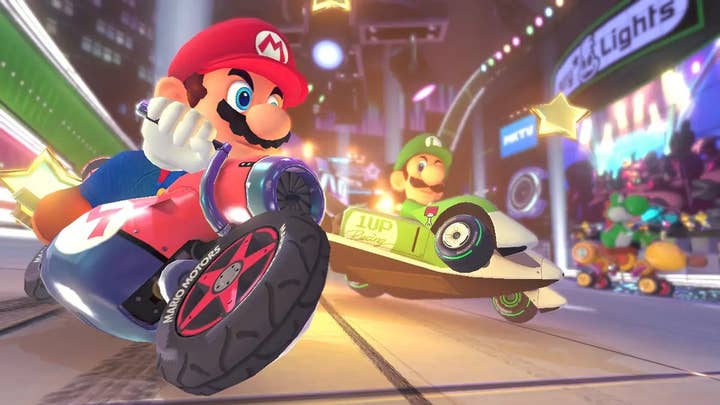
While Sony and Microsoft had big stage shows capitalizing on the live crowd's buzz and excitement for new systems, Nintendo ran an E3 Nintendo Direct video literally from an empty conference room at the company headquarters. Although that looks like a green screen backdrop to my admittedly untrained eye, which would be a vintage Nintendo Choice.
"This technology can make it look like we're literally anywhere!"
"How about the seventh floor conference room?"
Truly, they are the Nicolas Cage of gaming companies.
After showing off Pokémon X and Y for the 3DS, Nintendo got down to the difficult business of trying to resuscitate the Wii U.
(And yes, the Wii U was in rough shape less than a year into its life. EA had stopped making games for it, Ubisoft was publicly unhappy with the installed base, and third-party publishing partners Activision Publishing head Eric Hirshberg was telling us in interviews, "Obviously the Wii U is struggling - that's not a secret, I don't think there's any other way to read the narrative right now.")
Just as the 3DS found its stride with the arrival of Super Mario 3D Land and Mario Kart 7, Nintendo had Super Mario 3D World and Mario Kart 8 on tap to save the Wii U.
Other Wii U games featured on the E3 Direct included Wii Party U, The Legend of Zelda: The Wind Waker HD, The Wonderful 101, Donkey Kong Country: Tropical Freeze, Bayonetta 2, Xenoblade Chronicles X, and Super Smash Bros. for Wii U (and 3DS).
Seems like a pretty good lineup all in all, especially given how many of those titles became significant Switch releases, or could still be significant Switch releases if Nintendo brought them over now to pad out the system's late lineup.
Mario Kart 8 in particular became the best-selling game on the Wii U, with about 62% of the system's installed base winding up with a copy.
Mario Kart 8 Deluxe on the Switch hasn't been quite as ubiquitous, only selling to about 43% of the installed base to this point, but the massively larger number of Switches out there means that 53.8 million copies sold is still enough to make the Switch version Nintendo's best-selling game of the past 20 years, and almost certainly ever. (I refuse to acknowledge Wii Sports and its 82.9 million copies sold because it was a pack-in game with the Wii in most territories. Yes, it was the reason the Wii sold as many systems as it did in the first place, but I need it to not count for this, so it doesn't.)
All that said, there's not a whole lot in the E3 showcase to really dig into there in terms of a historical retrospective column, and that might speak to the strategy Nintendo was taking, one which much of the industry has followed suit on.
"Of course, as I'm sure you're aware E3 used to be the place where you made all of your big announcements but as we're seeing more and more, particularly with the advantages we have with the internet, we're able to make announcements really at any time," Nintendo's Shigeru Miyamoto told us in an interview at E3. "So the other thing we didn't want to do was go through all the news here at E3 - we wanted to be able to have some news to continue to share with consumers over time."
Women problems
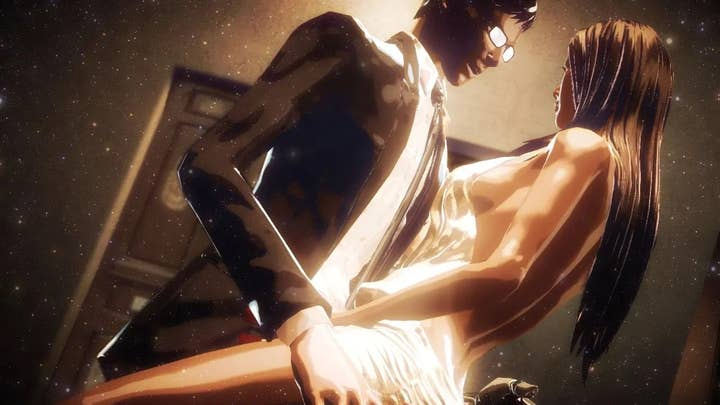
No, it's not time for Gamergate yet. That was August of 2014, and if you're looking for something to pull from that dumpster fire, I've given it my best shot already.
But it's not like Gamergate was the first hint that there were some problems with the way women were viewed in gaming circles, and June of 2013 offered a few reminders.
For example, there was an E3 on-stage demo of Killer Instinct where the game's male producer dismantled a woman opponent who clearly was not well-versed in the game, trash talking her by saying, "Just let it happen, it'll all be over soon." The rape joke drew some laughs from the crowd.
Microsoft later apologized and called it "an off-the-cuff and inappropriate comment." Even though the two demo players' comments were delivered with the sort of quasi-competent acting ability you might expect when you pull people whose real jobs are something else and put them on stage, let's give everyone the benefit of the doubt.
While an off-the-cuff rape joke is in some ways preferable to a premeditated, scripted, and corporate-approved comment, it speaks to how deeply ingrained and reflexive the misogyny in games is that a producer just thoughtlessly grasping for trash talk would zero in so quickly on sexual assault as a subject of humor.
The same month, Penny Arcade artist Mike Krahulik – who had been unapologetic when called out over his own rape joke in a comic – took to Twitter to give trans women a hard time for reasons that remain unclear.
"If thinking that all women have a vagina makes me a monster, then yes, I am a monster," Krahulik said, later responding to one person, "If you use the word 'cis' I probably will hate you too."
It was enough that Fullbright co-founder Steve Gaynor announced the studio wouldn't be participating at the Penny Arcade Expo (now known as PAX) convention in Seattle to show off its upcoming title, Gone Home.
Video games and deep-seated issues with women go together like free-to-play games and exploitive monetization
Years later, Gaynor himself would be accused of shabby treatment of women at Fullbright, because video games and deep-seated issues with women go together like free-to-play games and exploitive monetization. It's not there every time, but it's definitely there a suspicious amount.
Also in June of 2013 we found out about Trendy Entertainment, which was the subject of a Jason Schreier Kotaku report detailing (among other things), gender discrimination and creep-tastic creative direction, like company president Jeremy Stieglitz refusing to speak to women directly and insisting female characters be more sexualized, including robots that he wanted "aged under 18 robot years."
Stieglitz left Trendy the next year, fixing all the studio's problems. Oh wait no, because Polygon did another report on the studio last year (it rebranded to Chromatic Games in the interim) where management pressured women subordinates to cosplay as a suggestively dressed character and gave employees uninvited back and shoulder rubs. Beyond mistreatment of women, crunch and mismanagement are also common themes in both investigative reports.
This issue of course is not just confined to the people and culture surrounding games, as we can infer from the month's news about Australian government funding for the AAA game Whore of the Orient and the Gigolo Mode in Killer is Dead, in which the player wears X-ray specs and tries to surreptitiously ogle women in their underwear at a bar. It's conceivable titles and gameplay mechanics like that could be used to give well-grounded cultural critiques or make insightful commentary on a subject, but given the industry's track record here – not to mention the track record of some of the people behind the projects – a superficial reading of their significance is unlikely to steer you wrong.
In retrospect, GamerGate, the industry's sadly inadequate reaction to it, and its lacking progress on the treatment of women have all been pretty predictable parts of the same sad story arc.
What Else Happened in June of 2013
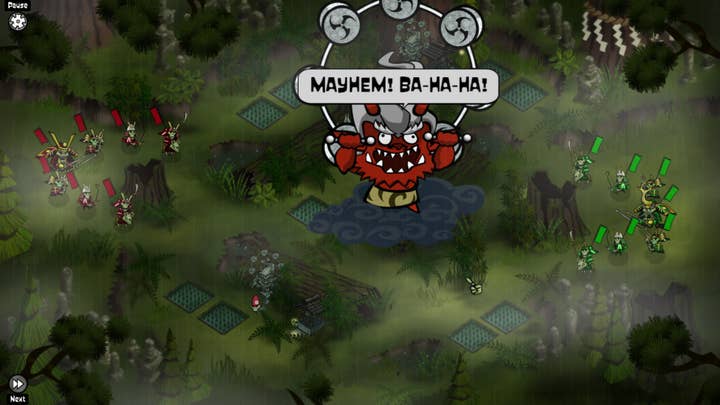
● Underscoring just how badly Microsoft had fumbled its indie advantage at the tail of the Xbox 360 generation, Skulls of the Shogun developer Borut Pfeifer had little in the way of good things to say about the experience of working with Microsoft on the game.
"When people call Microsoft 'evil'… while I don't want to defend them, it's kind of an undeserved compliment," Pfeifer said. "To be evil, you have to have vision, you have to have communication, execution... None of those are traits are things that I would ascribe to Microsoft Studios.
"They came across as though they were institutionally incompetent. I think they're not really set up to be a decent publisher. I do feel slightly bad saying that, because there were people there who worked hard on our behalf, but at the same time there are systemic problems with the way that division is setup and run."
● Zynga laid off hundreds as it pivoted away from Facebook and browser games and toward mobile. Among the studios was shutdown was Zynga New York (formerly Draw Something developer OMGPOP), which greeted the corporate hatchet men as liberators.
"Most layoffs are sad," one former Zynga New York employee said. "You imagine big corporate settings where security is there to lead people out of the office so they don't make a scene. This was the opposite. Music was being played loudly, and people were ripping up Zynga hoodies and T-shirts. Anything that was Zynga was completely left there. The sentiment felt positive."
Needless to say, if you ever lay a team off and they react like this, you were probably a very bad place to work.
● Games went Hollywood. Again. For like the umpteenth time. Ubisoft went ham with announcements of a Ghost Recon movie from Michael Bay (never happened), a Far Cry movie (unrelated to Uwe Boll's 2008 adaptation, never happened), a Watch Dogs movie (never happened), and a Rabbids movie (wound up as four seasons of the animated series Rabbids Invasion culminating in a 70-minute Netflix Mission to Mars movie last year).
Irrational Games' Ken Levine joined the party by signing on to write a remake of 1976 dystopian sci-fi flick Logan's Run, which we can expect to debut in theaters just after the launches of Ghost Story Games' Judas and the PlayStation Vita installment of BioShock.
Game-to-movie adaptations have had a bit more luck in recent years with Detective Pikachu, two Sonic films, Uncharted, and The Super Mario Bros. Movie all doing well. Maybe Gran Turismo will be self-aware enough to be fun, too.
Good Call, Bad Call
BAD CALL: Elsewhere at the intersection of games and movies, Microsoft CEO Steve Ballmer accompanied Xbox Entertainment Studios president Nancy Tellem on visits to various movers and shakers in Hollywood to emphasize Microsoft's "real commitment" to incorporating the film and TV industries into its business plan and services.
That real commitment would last about a year, as Microsoft shut down Xbox Entertainment Studios in 2014, kicking Tellem to the curb in the process.
GOOD CALL: Speaking with us about EA Sports' attempt to revive the dormant NBA Live franchise, NBA Live 14 executive producer Steve O'Brien compared the series to the Cleveland Cavaliers of the day, saying, "You can look down the road in a couple years and say, 'I could see them as a team that's going to be in contention."
Sure enough, the Cleveland Cavaliers made it to the NBA Finals in 2015, and in the three seasons thereafter. Even though they only won one championship in 2016, they were absolutely in contention, even if it was thanks to the free agent signing of LeBron James in 2014, which O'Brien probably hadn't been counting on.
BAD CALL: The other half of O'Brien's analogy didn't work out as well. NBA Live 14 mapped well to the narrative of a franchise in the first year of a rebuild – it was absolutely hammered by reviewers – and NBA Live 15 and NBA Live 16 fared better, but nowhere near what you would consider contention. EA benched the NBA Live franchise for another year, released NBA Live 17 and NBA Live 18 (which again showed modest improvements in review score) then threw in the towel.
This September will mark five years without an NBA Live release on consoles.
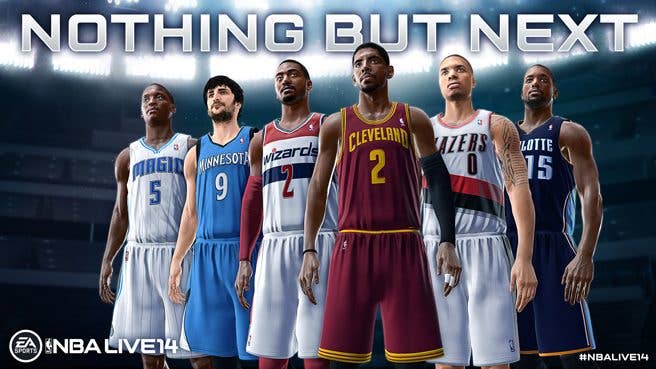
BAD CALL: While addressing privacy concerns around Google Glass, Kinect, and government surveillance, Atari co-founder Nolan Bushnell told us, "Whenever I hear backlash, I say, 'Boy, that's going to be more successful than I thought it would be. It's just the reality of the crazy world we live in." He also suggested Google Glass would be "important," which is one of those distinction's people tend to assume is positive but very frequently isn't, like Time's Person of the Year, a distinction shared by Hitler, Stalin, and you (assuming you were alive in 2006).
Regardless, Kinect and Glass failed, and the latter is "important" only because Google can claim to have been the first one at the AR potluck, even if the only thing they brought was some kind of casserole, loaf, or gelatin mold straight out of '70s Dinner Party.
GOOD CALL: Sony's Shuhei Yoshida acknowledged the surplus of "Consoles are doomed" predictions that had been floating around the industry, and correctly identified one of the key culprits, saying, "It's not the decline of consoles, it's the decline of a generation. This generation has been the longest on the PS3 and the Xbox, it's the seventh year. In older times we would have launched a new system already."
BAD CALL: Cliff Bleszinski saw the beating Microsoft was taking over digital restrictions of games and played the "big companies are not your friends and they will stab you in the back for money the first chance they get" card. And really, reaching for that card as a default won't have you going too far off course most times.
"You cannot have game and marketing budgets this high while also having used and rental games existing. The numbers do not work, people," Bleszinski said. "I'd bet Sony has some similar stuff up their sleeves they're just playing on the internet outrage for free PR. You're all being played!"
If Sony had similar stuff up its sleeves, it never actually put it into practice. Bleszinski would have more insight into the numbers not working than I do, but the shift to digital was undermining used games and rentals anyway, and the expansion of monetization options on consoles seems to have kept the game and marketing budgets viable for a variety of AAA projects even as budgets have continued climbing.
BAD CALL: Peter Molyneux promised a bunch of stuff about Godus, mainly that the 18-year-old who won the contest around the cube-clicker Curiosity "can now be the moral compass for everybody's game."
"Then what we can do with that power, every week he can make some decisions about the game, we can say after six months, you or your clan that you formed in Godus can challenge Bryan. If you win, you or someone in your clan can become god of gods. That means you are the moral compass, and you also get royalties from 22Cans as god of gods. And if this game is successful that could be a substantial amount of money.
"When you challenge Bryan, that will be on Twitch TV. That moment where you dared to challenge the god of gods, we're going to look at social media to see who's following which faction. That's like a reality TV show."
Needless to say, none of this happened.
A VERY NINTENDO CALL: Why does Nintendo deal with piracy and emulation the way it does? We looked into that in a This Week in Business column earlier this month, but that column doesn't answer questions like, "Why doesn't Nintendo insist on always-online DRM or digital restrictions like Microsoft had planned for the Xbox One?"
You could point to the Xbox One backlash or even Nintendo's unorthodox approach to almost anything online as culprits, but a Shigeru Miyamoto interview from Eurogamer a decade ago suggests there's more to it than that.
"What's really important is viewing Nintendo almost like a toy company where we're making these things for people to play with. As a consumer you want to be able to keep those things for a long time and have those things from your youth that you can go back to and experience again," Miyamoto said.
"I really want to retain that product nature of the games that we create so that people can do that and have that experience. To me that's something that's very important about entertainment itself. So from the approach of continuing to create things that are entertaining for people, that's an important direction for me that I want to maintain."
I can't say I'm thrilled with the general idea of viewing games as toys and products, but it's not entirely without upside.
